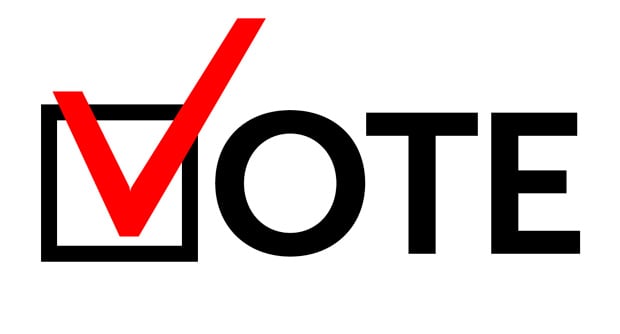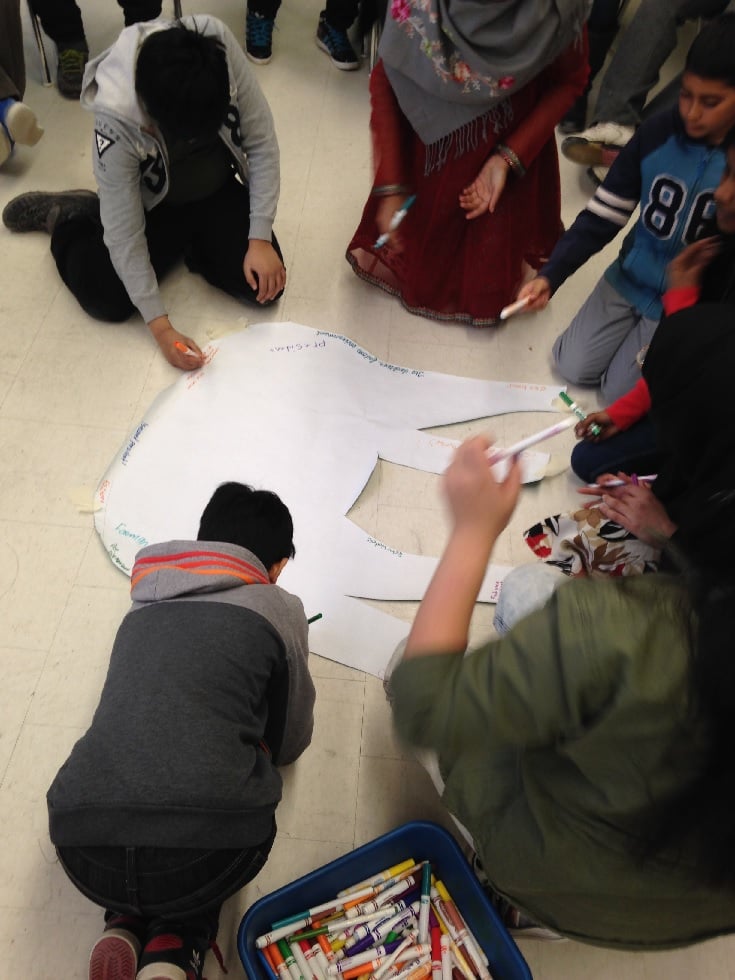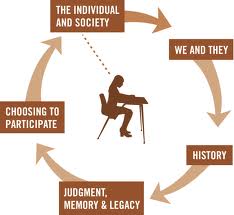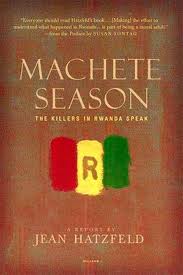As the school year gets under way, many of us are thinking about, planning and setting up our classrooms. We are thinking about our new students, and how we are going to plan our school year to meet the needs of all our students.
The Danger of a Single Story: A Back to School Reflection
Posted by Ariel Vente on September 13, 2015
Topics: Safe Schools, Urban Education, Strategies, Lesson Ideas
Many of the kids I teach at Nelson Mandela Park Public School at Regent Park in Toronto have emigrated from nations in which government corruption is rampant, the electoral system is compromised, and simply trying to exercise a right to vote can lead to threats, attacks, or even murder.
Topics: Choosing to Participate, Canada, Urban Education, Lesson Ideas
Voice, Reward, and Expectations: Reflections on a Middle School Classroom
Posted by Ariel Vente on March 20, 2014
As elementary schools have just passed the mid-point of the school year, I’ve taken some time to reflect on the first half of the year. Schools are part of a larger educational system. However, our classrooms are also a microcosm of society; a community of members with jobs to do, and rules, norms and expectations, which members are expected to follow. But, as we are too well aware, within the larger society, we encounter issues of unfairness and injustice. I’ve been questioning my practice and asking myself: Does my classroom parallel the oppressions of our society? Am I reinforcing and reproducing what is happening in the larger society in my classroom?
Topics: Professional Development, Identity, Urban Education, Regent Park, Middle School, Culturally Responsive and Relevant Pedagogy, Social Justice, Deficit Thinking, reflection
As you may have read in other blogs, the “Stand Up, Speak Out” event was an incredible evening of sharing and community. For me it served to exemplify, and personify, the Scope and Sequence of Facing History and Ourselves. On that evening, half a dozen of my students took the stage along with students from three other southern Ontario schools to perform their spoken word pieces. The performances were broken down into the five steps of the Facing History Scope and Sequence:
Topics: Choosing to Participate, Facing History Resources, Identity, History, Urban Education, project, We and They, Strategies, Culturally Responsive and Relevant Pedagogy, genocide, legacy, Genocide and Crimes Against Humanities Course, Holocaust and Human Behaviour, CHG, reflection
As educators, we want the answers as to why our students aren't learning. Do they have special education needs such as a learning disability? Are they lacking motivation? Did they get enough sleep the night before? Did they have breakfast? But how many of us ever ask: do my students feel safe? Overwhelming brain based research indicates the importance of students feeling safe in schools in order for them to be able to learn.
Topics: Urban Education, Middle School
Regent Park. This is where I teach. Originally, this east end Toronto neighbourhood was a planned garden community, with a mixture of mid rise and high rise rental apartments; originally, a place meant for parents to raise children. What has happened over 60 years in Regent Park is that it has become isolated, closed off from the surrounding city, a place where poor and new immigrants have made homes. The community has had its share of issues common to many big city neighbourhoods such as drugs, gangs and crime, but Regent Park is not a community made up of big city issues, it’s a community made up of diverse people!
Topics: Urban Education, Strategies
Using Literature Circles to Deliver Culturally Responsive and Relevant Pedagogy in Urban Schools
Posted by Michael Grover on May 31, 2013
In “Culturally Relevant Pedagogy: Ingredients for Critical Teacher Reflection,” Tyronne Howard notes the importance of finding ways to address the growing heterogeneity of our students cultural needs to “construct pedagogical practices that have meaning to students’ social and cultural realities,” (195-6). Literature Circles are a model that I used, which I have found to be an effective tool for engaging students using differentiation. The diverse nature of my classroom, which is common for an urban school, makes it is difficult to find a single text that will engage each student in the classroom. Since those students who do not engage and read their texts are traditionally the least successful, it is important to try and find materials they will.
Topics: Urban Education, Night, Literature Circles, Lesson Ideas, English Classroom, Red Scarf Girl, Literature, English
Rethinking Teaching is Hard but Rewarding: Some Thoughts on Facing History's latest workshop
Posted by Jack Lipinsky on May 29, 2013
Being a teacher keeps me thinking and growing all the time. It seems that as I age, my skills must get ever nimbler even as my legs fail to keep pace. I find that I am spending more and more time reflecting on how to create lessons that have a lasting impact, which leaves me less time to prepare the actual lesson. To speed the process, I needed a rubric for reflection--and Facing History's wonderful workshop on Urban Education that took place on 27 May was the perfect prescription. I want to share the highlights with you!
Topics: Professional Development, Urban Education
After a year of learning about Genocide and Crimes Against Humanity, students gravitate towards complex and profound questions that are increasingly difficult to answer. In a setting that involves teaching at-risk youth, this type of engagement can be frustratingly elusive. The lesson (content wise) that I will share with you today is one that should not stand alone. This took place in class after having done 3 case studies, including Rwanda, and a unit on concepts of Justice and Memorial. I found that this lesson was very successful at engaging students of all stripes through particular stories of perpetrators to try to gain a better understanding of universal questions of guilt, responsibility, reconciliation, and justice.
Topics: Facing History Resources, History, Urban Education, Strategies, genocide, Genocide and Crimes Against Humanities Course, Lesson Ideas, big paper, CHG
Integrating "Culturally Responsive and Relevant Practice" and Facing History into the Classroom
Posted by Michael Grover on May 27, 2013
Culturally Responsive and Relevant Pedagogy [CRRP]
Topics: Urban Education, Culturally Responsive and Relevant Pedagogy, Deficit Thinking




